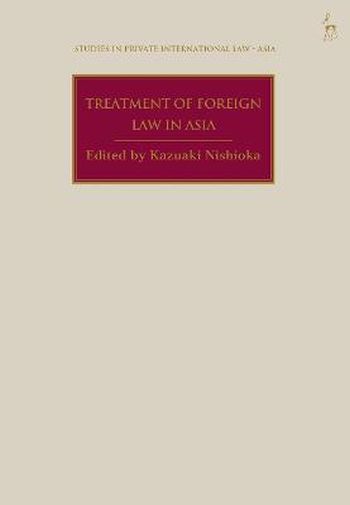
How do Asian courts ascertain, interpret, and apply a foreign law as the law governing the merits of the case? What should judges do if parties do not raise or disagree on the content of foreign law? This thematic volume in the Studies in Private International Law - Asia series analyses the treatment of foreign law before judicial authorities, that is, how the courts of Asian states deal with the proof of foreign law in court litigation involving cross-border elements.
The individual chapters cover 15 Asian jurisdictions: Mainland China, Hong Kong, Taiwan, Japan, South Korea, Singapore, Malaysia, Vietnam, Cambodia, Myanmar, the Philippines, Indonesia, Thailand, Sri Lanka, and India. The Introduction and Conclusion examine similarities and differences in the approaches taken by the 15 Asian states with a view to assessing the extent to which those approaches are consistent or different from each other. The book also puts forward suggestions for harmonising differing approaches, especially between Asian common law and civil law states. The book is a one-stop reference guide on the treatment of foreign law in Asia and will be indispensable to judges, practitioners, and scholars not just in Asia, but worldwide.